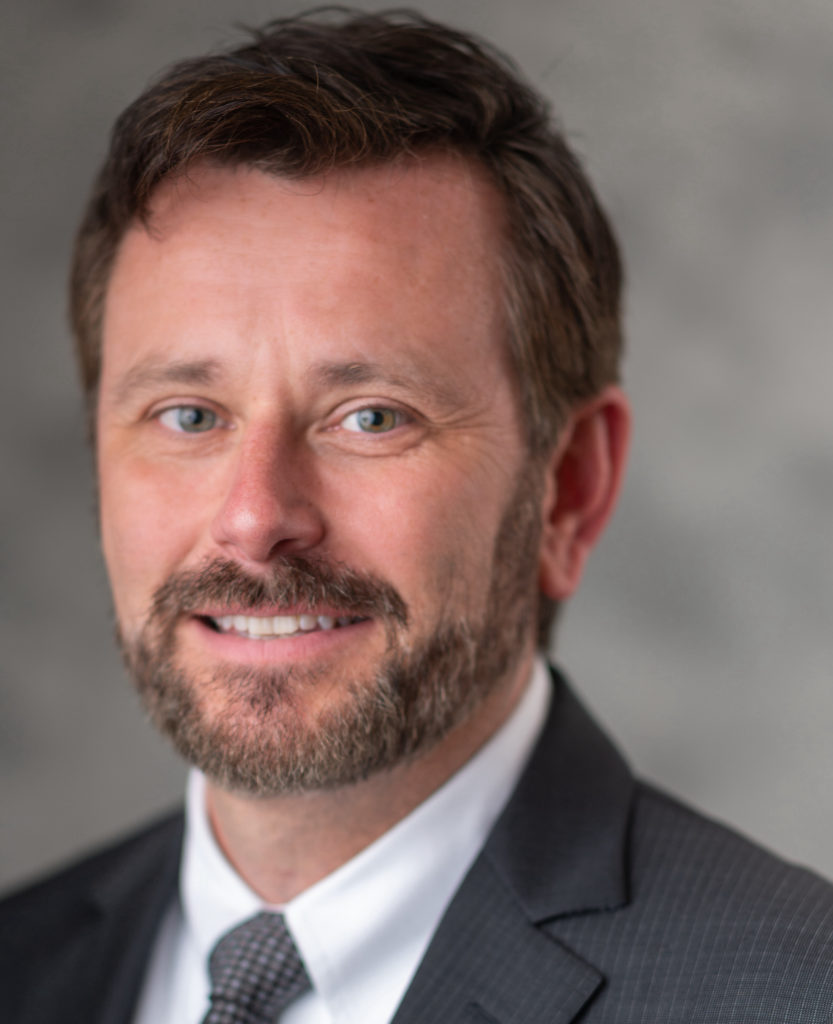Nonprofit provider Hosparus Health has tapped David Cook to lead the organization following the retirement of prior CEO Phil Marshall. Cook, currently CEO of Carolina Caring in Newton, N.C., will step into the role on Sept. 7.
The move represents something of a homecoming for Cook, who previously spent 15 years at Hosparus in a number of leadership positions, including chief operating officer. Since Marshall’s departure early this year, Hosparus board members Cathy Zion and Cis Gruebbel have served as interim co-CEOs.
Hospice News reached Cook by phone to discuss his plans for the organization, including its participation in the value-based insurance design (VBID) demonstration and plans for future growth.
What are some of your top priorities as you take the helm at Hosparus?
Initially when you go in, what’s most important is to evaluate what’s working. Hosparus is a great organization. It’s got a great history. Then we look at where the opportunities are. I think we’re seeing programs like Hosparus — nonprofit programs that need to broaden their scope — they need to look at opportunities to serve individuals who are facing serious illness beyond hospice care. We will be looking for opportunities to enhance what we do.
You had an earlier tenure at Hosparus as chief operations officer. What brought you back?
I did spend 15 years at Hosparus and did a lot of work building that program. When I got the great opportunity to be CEO at Carolina Caring, I didn’t expect the CEO position to become open at Hosparus. I was surprised when that did open up. Louisville is home for me. My parents are in the area, and my wife’s parents. Hosparus is an organization that I love, and they’re local to the place we call home. So it made a lot of sense.
Hosparus is one of the organizations participating in the VBID program, often called the Medicare Advantage hospice carve-in as a member of Humana’s (NYSE: HUM) preferred provider network. How might that partnership shape your operations?
It’s a great opportunity for programs like Humana and organizations like Hosparus to really look at how we meet the triple aim. How do we improve the quality of care, lower the cost of care and make the experience for patients and families better?
Again, that goes back to being a broader organization to meet the needs of serious illness for folks that aren’t yet medically eligible for hospice, or those who maybe are just not ready to choose hospice.
VBID of course is a Center for Medicare & Medicaid Innovation (CMMI) demonstration project. Very few of those to date have been made permanent. In the event that the carve-in does not become a permanent benefit within Medicare Advantage, do you think that the investments that providers have made to prepare for the program will still bear fruit?
There’s a lot to watch with VBID especially in the hospice space. When you’re looking at opportunities to provide care earlier with a Medicare Advantage plan, there’s a lot of benefits to that.
There’s also some things that we need to watch and be careful of with VBID. We have to make sure that patients continue to have choice in who they want their hospice provider to be. But regardless of whether or not that CMMI program turns into an actual full-fledged program, I think it’s raised awareness about the importance of end-of-life and serious illness care.
As we move forward, we have to find more creative ways to help people that are dealing with serious illnesses, as well as the cost of care and the quality of care. There’s been a lot of things that we are experimenting with and finding opportunities for new programs, but this also gives us an opportunity to look at things that sometimes health care organizations haven’t considered.
For example, there’s the question of someone suffering with [chronic obstructive pulmonary disorder] and they’re having these recurring hospital stays that are running $10,000 a piece. We can find ways to prevent those hospitalizations. That really is something that health care organizations haven’t thought about in the past. We have to think about it now. What are the social determinants of health? How do they impact the quality of life of folks in our communities?
I do think there will be lots of things that will come out of this.
What can you tell me about the strategies that you intend to use in pursuing growth for Hosparus?
First thing is to build a leadership team that is really focused on trust and respect. We’ve worked really hard at Carolina Caring to do that, which allowed us to be named a Best Place to Work by Modern Healthcare three years in a row. I want to be able to bring some of that energy to Hosparus.
Hosparus is a great program, but we all have opportunities for improvement. If we can focus on building that, it will give us the ability to move faster and meet the broader needs of the community.
In addition to palliative care and our core hospice business, we would consider home-based primary care. I think there’s a great opportunity for those who aren’t able to get to a primary care physician’s office. It’s really a program that really addresses an unmet need.
In one county that [Carolina Caring] works with, we saw more than 100 people that call an ambulance on a regular basis, and then refused transport. Those folks are trying to use [emergency medical services] as their primary care support. There’s a need that’s out there. It’s just a matter of finding those folks and tapping into it. It’s another way of providing better care and better quality at a lower cost.



